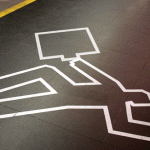Jay Altschuler, Unilever
We are at the start of a new digital era. The next stage shouldn’t be called Web 3.0 as it’s not about the ‘web’ anymore. Mobility is the heart of this new era and people spend more time in apps than they do on the web. There are very deep layers of personalisation in mobile apps that can aggregate all the activity that you and your friends are involved in, this gives us functionality that can predict user behaviour.
August 10, 2011

We are at the start of a new digital era. The next stage shouldn’t be called Web 3.0 as it’s not about the ‘web’ anymore. Mobility is the heart of this new era and people spend more time in apps than they do on the web. There are very deep layers of personalisation in mobile apps that can aggregate all the activity that you and your friends are involved in, this gives us functionality that can predict user behaviour.
At Unilever, we’ve adopted in-app advertising via iAds and AdMob, because we need to test these small screens to see how powerful and emotive they can be at storytelling, compared to TV. We’ve built a billion dollar business on the back of television advertising, now the next stage is mobility. This is the bridge between the online and offline worlds.
The only way to grow the digital part of our market is to connect on the mobile, using the power of operating systems on which the user can tap and swipe, and are GPS aware. Active engagement on these devices can be anywhere from 60 seconds to two minutes. We’ve never seen this before.
Apps tend to hold the biggest promise but come with the biggest risk. They are the most personal, dynamic and responsive. But there’s no room in the app world for good or very good, it has to be amazing, and fortune only favours the brave.

Mobile advertising image
Back To The Main Feature And More Interviews On Advertising
About the Author
You May Also Like












_1.jpg?width=300&auto=webp&quality=80&disable=upscale)
